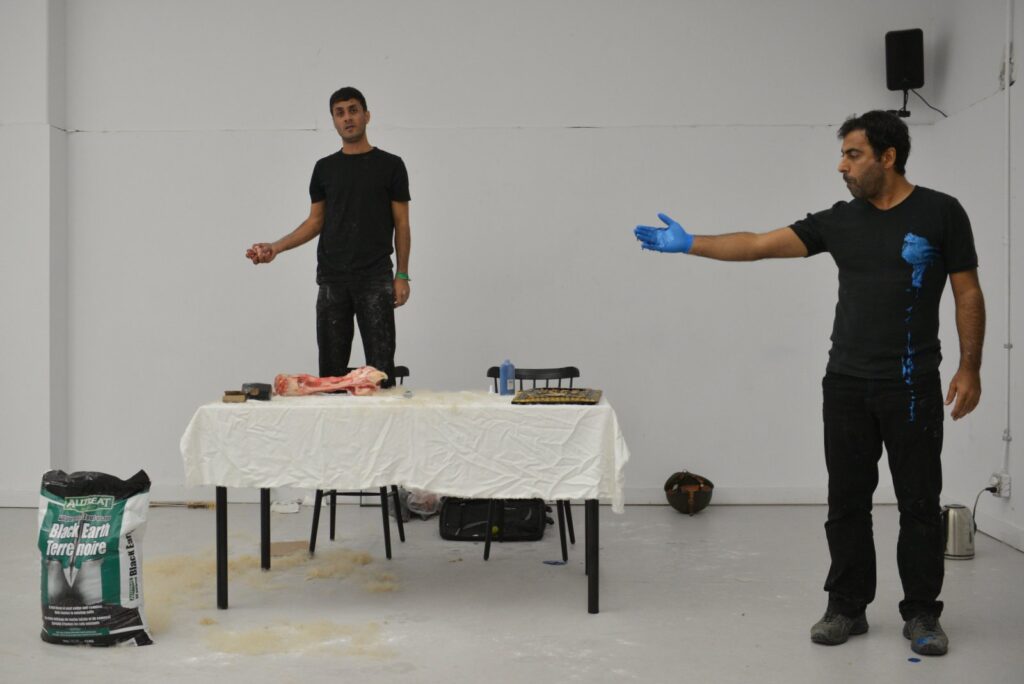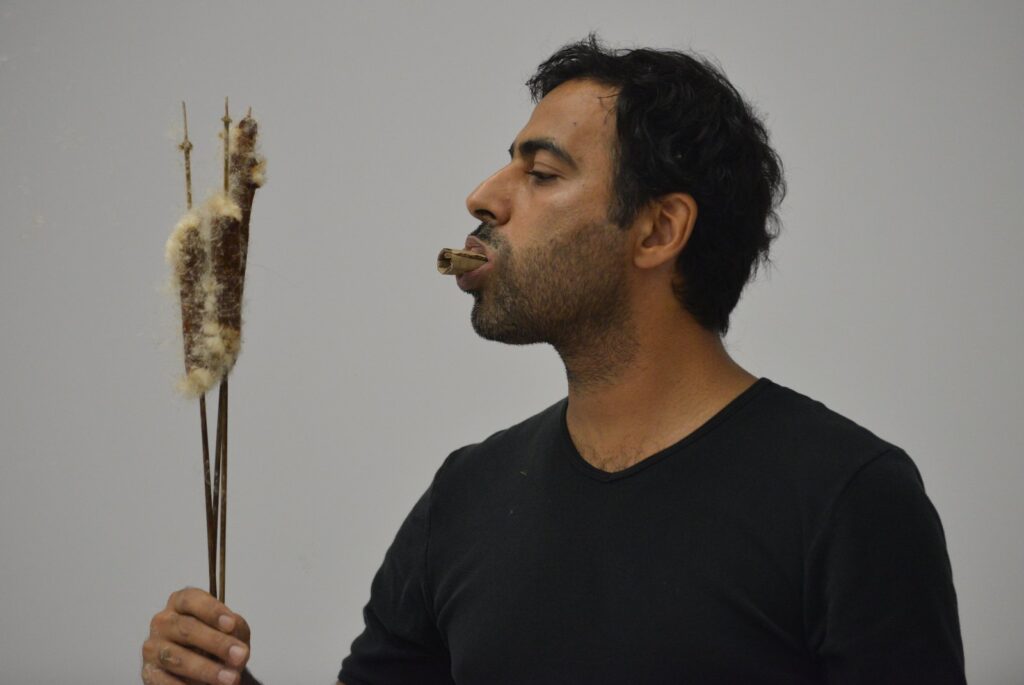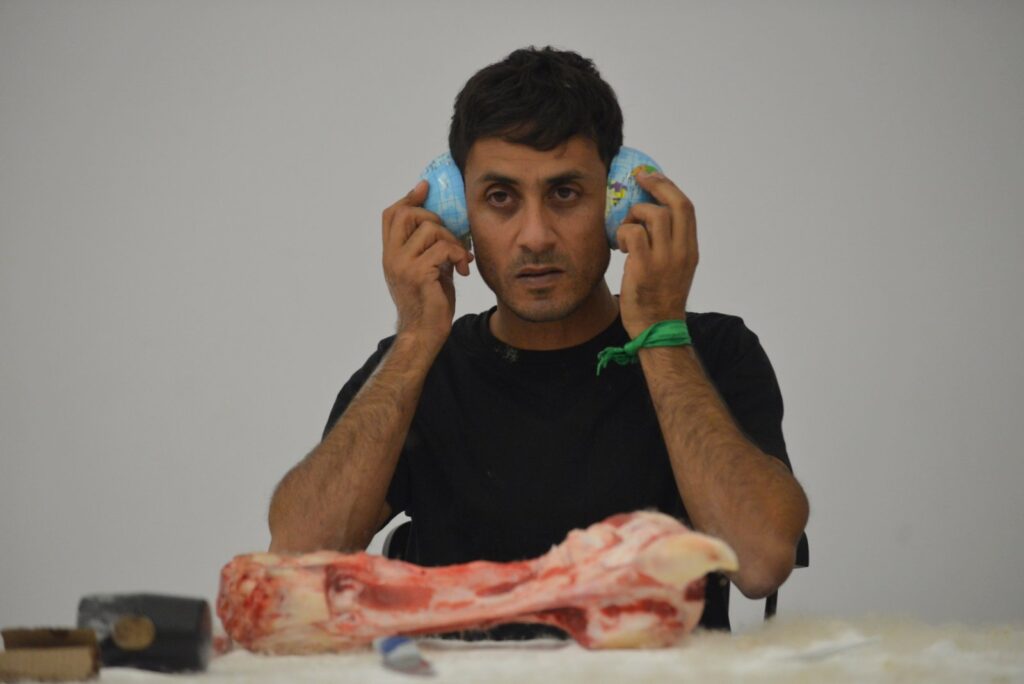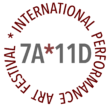By Alison Cooley

I have lost my notes detailing the gathering of small gestures which make up Vanishing Borders, a performance by Switzerland-based Iraqi artists Ali Al-Fatlawi and Wathiq Al-Ameri. I cannot sketch out the procedural building of a relation between these two, whose actions in concert and poetic counteraction with each other betray a profound relationship of sensitivity.
Some of the duo’s gestures are failing: as Al-Fatlawi pushes against a vertical chalkboard with all his weight, slipping on the linoleum floor, Al-Ameri sets off a cloud of flour in the middle of a table, pounding it with a meat mallet. Al-Ameri comes up against the same chalkboard-wall later in the performance, pushing a leg of raw meat like a plow against it.
Other gestures are instrumental: the creation of new tools for engagement. Al-Fatlawi mechanizes a cardboard tube he has rolled up into his mouth, forging a new sensory relation with breath. The opening and closing of his mouth triggers a rushing sound which fills the room, amplifying his exploratory actions (planking face-towards the exploded seeds of a handful of rush-stalks, cutting cardboard, imprinting over his heart with a crush of some blue sludgey substance). Al-Ameri duct-tapes a femur bone to his arm as a pathetic bludgeon.

Al-Fatlawi mentioned in a panel earlier this week that the duo’s practice operates in the space between politics and poetry. Their index of actions is resonant but oblique, moving but assured, sly and serene, suffered and veiled. There are moments of clear political symbolism (Al-Ameri’s helmet, whose crest is composed of scavenged bits of raw meat; or the performance’s scrolling projection of flags; or the duo’s alternating gesture to ingest or listen to small, dollar-store globes). At one point in the performance, Al-Fatlawi cuts a hole and sticks his head through a cardboard reconstruction of some document (a banknote? a government document? a fragment of the quran?) laden with Arabic script and decorative Islamic arabesques. The impossibility of my understanding this reference struck me, both as my own cultural failing and as a kind of insistence on the duo’s part, to incorporating concrete cultural signifiers, which may not reach out universally, but are certain to affect in pockets of the audience— particularly, pointedly.

What I am left with after Vanishing Borders is a catalogue of signals, cooperative but always only at the brink of meeting: fumblings for reconciliation.
